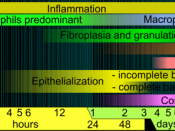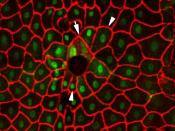The Advantages of using Enzymes in Biotechnology
Biotechnology is the use of biological processes to exploit and manipulate living organisms and biological systems to develop or manufacture a product that is a solution to a problem.
An enzyme is a protein, which is able to catalyse biochemical reactions. Reactions need to exceed their activation energy in order to take place. Enzymes reduce the need for activation energy and so allow reactions to take place more readily. An advantage of using enzymes in biotechnology is that we can manufacture enzymes with specific properties or characteristics that are essential in a particular problem
The problem with carrying out enzyme-catalysed reactions with the enzyme in the solution is that it leads to enzymes going to waste. There was also difficulty in removing the enzymes from the end products and even more difficulties when purifying the recovered enzyme so that it can be used again.
The answer to this problem is enzyme immobilisation. This involves the enzyme being bound immovably to a surface; this prevents it from being dissolved in the solution containing its substrate. Then, whilst the reaction is taking place, the enzyme is held in place then removed afterwards and used again. Enzyme immobilisation can be done in a variety of methods, such as, absorption, gel or membrane entrapment, encapsulation or by cellulose or covalent bonding. A good example of encapsulating is in the production of biological washing powders in which the enzyme trypsin is used.
Enzymes had been widely used in laundering detergents since the 1960's. The major classes of enzymes have particularly good properties when dealing with certain stains.
Lipase - breaks down lipid stains into fatty acids any glycerol
Amylase - break down starch stains
Cellulase - break down the ends of the damaged cotton fibres to remove the...


